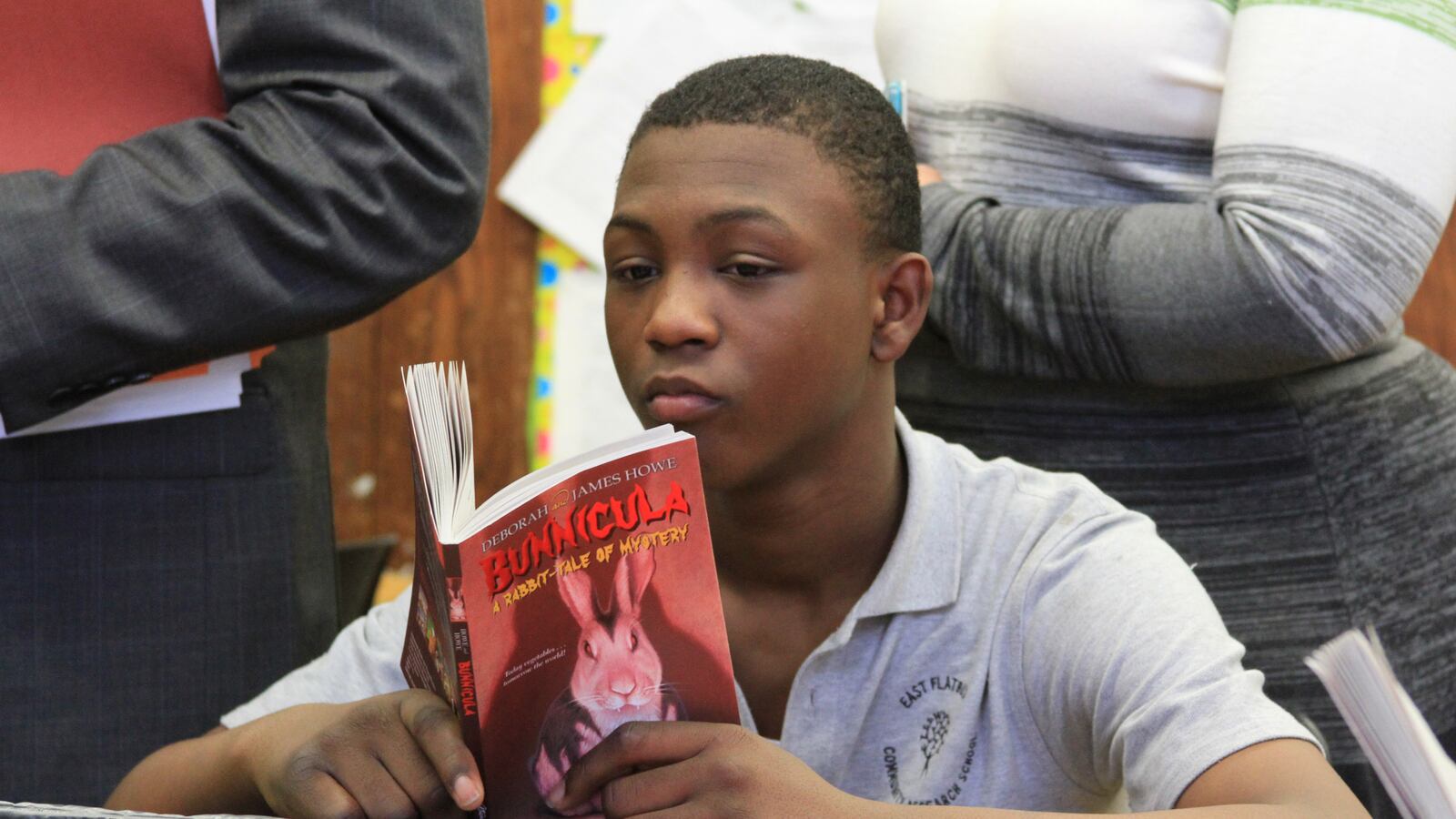New York City’s push to have every third-grade student reading on grade level will begin with a hundred educators dispatched to coach reading teachers in key districts, officials said Thursday.
The first step in the city’s universal literacy program — a cornerstone of Mayor Bill de Blasio’s education agenda — is to place those 100 reading coaches in schools in four high-needs districts in Brooklyn and the Bronx. Coaches may teach some lessons, but their focus will be training teachers, not on helping individual students who have fallen behind.
“It’s not going to be a reading specialist — the terminology is really important here,” said Esther Friedman, the education department’s director of literacy. “The coaches’ main responsibility is to train the early grade teachers.”
Looking for more New York City education news? Sign up for Chalkbeat’s morning newsletter.
The city is currently looking for that first group of coaches, and Chancellor Carmen Fariña is calling on elementary school teachers to apply this week. In a letter sent to those teachers, Fariña described the positions as way for teachers to be a part of a bigger-picture effort to improve education in New York City and promised they would receive significant support.
“All reading coaches will receive training from local and nationally acclaimed leaders in the literacy field, and will be part of a network of instructional leaders across the City,” Fariña wrote.
The reason the city chose to focus on improved reading instruction is clear: Only about 30 percent of city students are proficient in English in third grade. The city has met that statistic with lofty goals: Over the next six years, the city has pledged to increase that number to over 60 percent, and to have every student reading on grade level by 2026.
The city’s main weapon to accomplish that goal is the new reading coaches. Their numbers are expected to grow to nearly 300 in fall 2018 and more than 470 by 2019.
The first 100 will be sent to elementary schools in districts 9 and 10 in the Bronx and districts 17 and 32 in Brooklyn. Friedman said those were chosen because they had the largest share of third-grade students earning a level 1 of 4 on the state English exams. As the program expands, the city will send coaches to other high-need districts, she said.
Within schools, coaches will focus on research-based strategies to help students improve their reading skills. They are looking towards five components of reading identified by the National Reading Panel as key to developing literacy skills.
“We’re really going to focus on research,” Friedman said. “We are going to focus on turning that research into good practice.”

